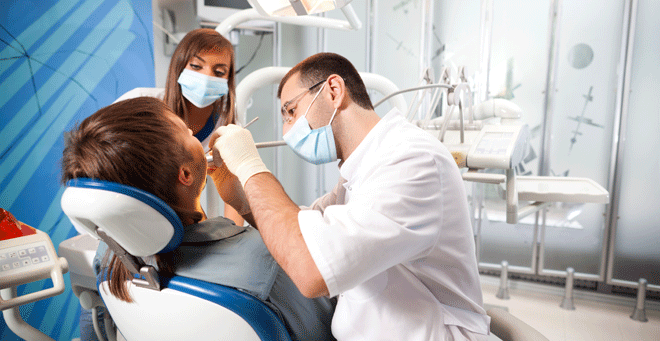 |
|
|
Two Eunice Kennedy Shriver Center projects are training dentists on how to care for individuals with intellectual or developmental disabilities and researching the most effective treatment techniques, according to an article in the Telegram & Gazette April 29. |
Dentists in general practice are taking on more patients with special needs, but those with intellectual or developmental disabilities may still have difficulty finding dentists to treat them. Two Eunice Kennedy Shriver Center projects aim to change that by training dentists on how to care for this population and researching the most effective treatment techniques, according to an article in the Telegram & GazetteApril 29.
“It’s a population that is better served now than before, as far as children go, but there’s a big drop-off in finding dentists for adults,” Richard K. Fleming, adjunct associate professor of psychiatry, told the paper.
The Shriver Center, part of UMass Medical School’s Commonwealth Medicine division, has received two grants for the work on oral health. A grant from the National Institutes of Health, in partnership with Praxis, Inc., has enabled the Shriver Center to develop two online dental courses for dentists, dental hygienists and students to educate them on how patients with intellectual and developmental disabilities can be treated in a general practice with some modifications. The Centers for Disease Control National Center for Birth Defects and Developmental Disability has given the Shriver Center a grant to determine the most effective techniques for improving oral health for individuals with intellectual and developmental disabilities.
“Of course, a dental office for anybody is kind of a sensory overload,” Helen Hendrickson, a project director at the Shriver Center who co-managed the online video courses, told the Telegram. “However, for an autistic individual, having a light shone in their eyes, hearing the buzz of the drill, tasting dental paste, having tools thrust into their mouth—all can be overwhelming.”
Much of the information on the dental problems of individuals with special needs comes from the health screening required for participation in the Special Olympics.
“That screening may be the first time a dentist has looked inside their mouth,” said Alexandra Bonardi, clinical assistant professor of family medicine & community health, who worked on the CDC project on Oral Health Surveillance/Disparities.